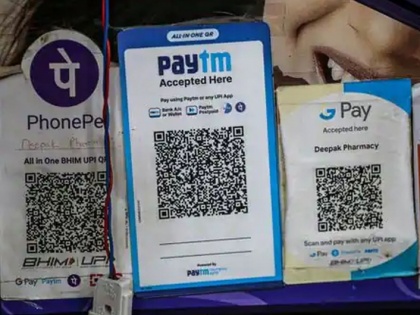PhonePe, Google Pay in Talks to Levy Charges on UPI Transactions
By Lokmat English Desk | Published: March 13, 2024 08:51 AM2024-03-13T08:51:27+5:302024-03-13T08:51:56+5:30
UPI payments have remained free of charges, distinguishing it from Paytm, which imposed fees ranging from Rs 1-2 for ...

PhonePe, Google Pay in Talks to Levy Charges on UPI Transactions
UPI payments have remained free of charges, distinguishing it from Paytm, which imposed fees ranging from Rs 1-2 for services like recharges and gas bookings. Following regulatory actions against Paytm Bank, the company faced criticism. Notably, other app-based platforms such as PhonePe and GPay are now considering levying charges on UPI transactions. Despite previous speculations, the central government has unequivocally denied any plans to implement such charges. The recent setback for Paytm Bank has opened up opportunities for its competitors, prompting them to strategize for financial gains and enhance their market standing.
PhonePe and Google's GPay app are making significant strides in the domestic market, expanding their presence. Meanwhile, Paytm's UPI barcode frequently encounters issues during payment transactions. Users often receive notifications after scanning the code indicating that the payment hasn't been deducted, leading to frustration and prompting them to resort to alternative apps for completing transactions.
Fintech firms are worried about revenue loss in UPI transactions due to the absence of a Merchant Discount Rate (MDR). They argue for a credit card-like system to ensure long-term viability. Some have talked to NPCI about charging UPI payments via prepaid devices, but no decision has been made. The government rejected proposals for UPI fees, and NPCI hasn't commented.
After the RBI ban, Paytm's UPI transactions decreased from 1.4 billion to 1.3 billion in February. Meanwhile, Google Pay and PhonePe have gained from this situation, now dominating about 80 percent of the UPI market.